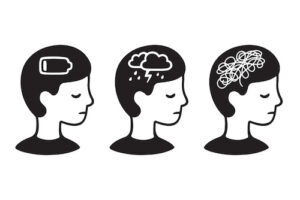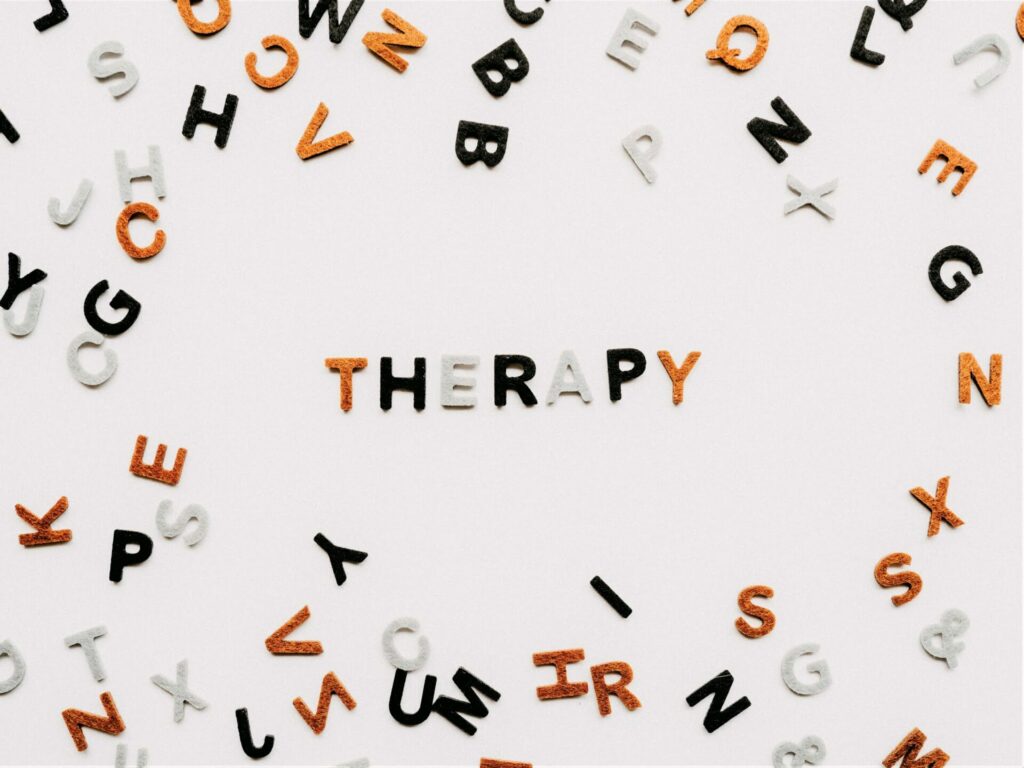Mental health is just as important as physical health, but unfortunately, it is often overlooked. In many cases, people turn to medication when they are struggling with mental health issues, without ever trying alternative therapies. Eclectic therapy is a holistic approach to mental health care that can be very effective for many people. In this blog post, we will discuss what eclectic therapy is and how it can help you or someone you know who is struggling with mental health issues.
Contents
Defining Eclectic Therapy
 Let us first understand what the word “eclectic” stands for. It means “deriving ideas, style, or taste from a broad and diverse range of sources.” When it comes to therapy, this means that the therapist is not limited to just one approach or school of thought. They are free to use whatever methods they think will be most helpful for the individual client. This type of therapy is also sometimes called “integrative” or “holistic” therapy.
Let us first understand what the word “eclectic” stands for. It means “deriving ideas, style, or taste from a broad and diverse range of sources.” When it comes to therapy, this means that the therapist is not limited to just one approach or school of thought. They are free to use whatever methods they think will be most helpful for the individual client. This type of therapy is also sometimes called “integrative” or “holistic” therapy.
The therapist will tailor the therapy to the individual, using whatever methods they think will be most effective. What works for one person may not work for another. This is why eclectic therapy is such a popular approach. It allows patients to choose the therapies that work best for them, while still receiving guidance and support from a therapist.
Over the years, there has been an emerging trend of people wanting to try different approaches for therapy. This is likely because the traditional approach to therapy, which is often limited to talk therapy, does not work for everyone. Some people need more than just talk therapy to feel better. Eclectic therapy takes this into account and allows therapists to use a variety of methods to help their patients.
How Is It Different From Other Approaches For Therapy?
What makes it distinct from other traditional types of therapy is that the therapist will use a combination of different approaches to help the patient. This might include using talk therapy, medication, and alternative therapies like yoga or meditation. The therapist will work with the patient to find what works best for them.
It also has an emphasis on the whole person, rather than just the symptoms they are experiencing. This means that the therapist will focus on helping the patient to understand and manage their emotions, as well as any other areas of their life that may be affecting their mental health.
This approach is different from traditional therapy in that it is not limited to one type of therapy or approach. It is also different in that it focuses on the whole person, rather than just the symptoms they are experiencing.
Techniques Used
 There is no hard and fast rule as to what combinations or types of therapies can be used in eclectic therapy. It will depend on the therapist and what they think will be most helpful for the individual patient. However, there are some common types of therapies that are often used in this type of therapy.
There is no hard and fast rule as to what combinations or types of therapies can be used in eclectic therapy. It will depend on the therapist and what they think will be most helpful for the individual patient. However, there are some common types of therapies that are often used in this type of therapy.
- Cognitive behavioral therapy
- Dialectical behavioral therapy
- Psychodynamic therapy
- Interpersonal therapy
- Narrative therapy
- Exposure therapy
- Client-centered therapy
- Family therapy
- Acceptance and commitment therapy
- Expressive art therapy
- Hypnosis
- Mindfulness
- Relaxation techniques
Of course, these are just a few examples. There is a sea of various types of therapeutic techniques and alternative therapies that can be used in eclectic therapy. The therapist will work with the patient to further find what works best for them.
The combination of these is further molded into various types. These types are characterized by the different techniques that they use. These types include:
- Brief eclectic therapy: This model is shorter in duration and is typically used for patients with less severe mental health issues.
- Intermediate eclectic therapy: This model is used for patients with more severe mental health issues. It is longer in duration and typically involves more than one type of therapy.
- Long-term eclectic therapy: This model is used for patients with chronic mental health issues. It is the longest in duration and typically involves a combination of different therapies.
- Cognitive-interpersonal approach: This approach consists of both cognitive and interpersonal therapies.Behavioral-analytical approach: This approach consists of both behavioral and analytical therapies.
- Multi-modal therapy: This approach, by the name of it, consists of multiple therapies.
- Transtheoretical model: At last, the transtheoretical model. This approach pulls from all of the different approaches to create a more individualized treatment plan for the patient.
These are all the types of interventions and therapies that can be used in eclectic therapy!
Examples
Let us understand the application of these types and techniques through hypothetical examples.
- Assuming we have a client named John who is suffering from anxiety and depression. The therapist might use a combination of cognitive behavioral therapy, dialectical behavioral therapy, and exposure therapy to help John. Cognitive behavioral therapy would help John to understand and change the negative thinking patterns that contribute to his anxiety and depression. Dialectical behavioral therapy would help John to develop a more balanced and healthy way of thinking about his emotions. Exposure therapy would help John to confront his fears and learn to manage his anxiety.
- Let us also understand this better through a non-clinical case. Supposing we have a client named Sarah who is struggling with her relationship with her boyfriend due to previous traumas and also because of an accompanying eating disorder. The therapist might use a combination of interpersonal therapy, narrative therapy, and family therapy to help Sarah. Interpersonal therapy would help Sarah to understand and improve her communication and relationship skills with her boyfriend. Narrative therapy would help Sarah to change the story she tells herself about her previous trauma and her eating disorder. Family therapy would help Sarah to improve her relationships with her family members and also to understand how they have contributed to her trauma and eating disorder.
As you can see, eclectic therapy is a very flexible approach that can be tailored to the individual needs of each patient. It is an approach that is based on the belief that there is not one single way to treat mental illness, but that a combination of different approaches can be more effective. If you are seeking therapy, ask your therapist if they use an eclectic approach.
Conditions It Helps With
 As we may have already observed, eclectic therapy is an all-round and comprehensive approach to mental health care. It can be used to effectively treat a wide range of mental health conditions, such as:
As we may have already observed, eclectic therapy is an all-round and comprehensive approach to mental health care. It can be used to effectively treat a wide range of mental health conditions, such as:
- Anxiety disorders
- Depressive disorders
- Bipolar disorder
- Sleep disorders
- Eating disorders
- Personality disorders
- Obsessive-compulsive disorder
- Post Traumatic Stress Disorder
- Substance addiction
In addition to the clinical disorder, there are also various other psychological and emotional issues that eclectic therapy can help with, such as:
- Grief
- Anger management
- Stress management
- Life transitions
- Low self-esteem
- Relationship issues
- Family conflict
- Body image issues
All these issues are a part of our lives, and at some point or the other, we all need help dealing with them. Eclectic therapy can further be a very helpful approach in such cases.
Advantages
Eclectic therapy has many advantages over other approaches to mental health care. Some of these advantages are:
- It is an evidence-based approach: Eclectic therapy is not just a random collection of different therapies, but an evidence-based approach. This means that the different techniques and interventions used in this approach have been proven to be effective in treating mental illness.
- It allows flexibility: As we have seen, eclectic therapy is a very flexible approach. This flexibility allows the therapist to tailor the treatment to the individual needs of each patient.
- It is tailored to the individual: As we have seen, one of the main advantages of eclectic therapy is that it is tailored to the individual needs of each patient. This means that the therapist can choose the interventions and techniques that will be most effective for the specific case.
- It is a holistic approach: Eclectic therapy takes a holistic view of mental health and well-being. This means that it not only focuses on treating the symptoms of mental illness but also on promoting overall health and well-being.
- It is a collaborative approach: Eclectic therapy is a collaborative approach, which means that the therapist and the patient work together to create a treatment plan. This can lead to more effective treatment, as the patient feels more involved in his or her own care.
- It takes care to customize: Because each person is unique, this type of therapy takes care to customize the treatment plan to meet the specific needs of the individual. This means that the therapist will take into account the person’s cultural background, personal history, and current situation.
All these advantages make for a very effective and comprehensive approach to mental health care. If you are seeking therapy, ask your therapist if they use an eclectic approach.
Limitations
Like every other approach, eclectic therapy also has its own limitations. Some of these limitations are:
- It is not suitable for everyone: Eclectic therapy may not be suitable for everyone. This is because it requires a high level of commitment from both the therapist and the patient. If either one is not willing to commit, then this approach may not be effective.
- It is time-consuming: Eclectic therapy can be quite time-consuming, since it involves a lot of different techniques and interventions. This means that it may not be suitable for people who are looking for a quick fix.
- It can cause overwhelm: When one is bombarded with too many different techniques and interventions, it can cause overwhelm. This is because the brain can only process so much information at a time. If the therapist is not careful, the patient may feel overwhelmed and may even give up on therapy.
- It is expensive: Eclectic therapy can be quite expensive, as it often requires the services of multiple professionals. This means that it may not be affordable for everyone.
Despite these limitations, eclectic therapy remains a very effective and comprehensive approach to mental health.
Tips For Getting Started
 If eclectic therapy takes your fancy and you wish to give it a go, here are some tips to get you started:
If eclectic therapy takes your fancy and you wish to give it a go, here are some tips to get you started:
- Find a therapist who is experienced in this approach: As we have seen, eclectic therapy is not suitable for everyone. It is important to find a therapist who is experienced in this approach and who knows how to tailor it to your specific needs.
- Be prepared to commit: Eclectic therapy requires a high level of commitment from both the therapist and the patient. If you are not prepared to commit, then this approach may not be suitable for you.
- Be patient: Eclectic therapy can be quite time-consuming, so it is important to be patient. This approach often requires multiple sessions in order to be effective, so do not expect to see results overnight.
- Do your homework: The reality about therapy is that most of its effectiveness lies in the homework that you do outside of the session. Be prepared to put in the work, and you will further see results.
- Practice consistency: One of the most important things you can do for your mental health is to be consistent with your therapy. This means attending all your sessions and doing the homework that is assigned to you.
If you are looking for a comprehensive and individualized approach to mental health care, then eclectic therapy may be right for you. With its many advantages, it is no wonder that this approach is gaining popularity. Just remember to do your research and to find a therapist who is experienced in this approach. With commitment and effort, you will be on your way to recovery in no time.
Conclusion
Conclusively, we can determine that eclectic therapy is a very effective approach to mental health care. It has many advantages, but it also has its own limitations. If you are considering this approach, make sure to do your research and to find a therapist who is experienced in this method. With commitment and effort, you can achieve an improved state of mental health.
If you or someone you know is looking for psychological help, Therapy Mantra is here for you. We are the leading providers of online therapy and counseling. Our team of highly trained and experienced therapists can provide assistance at the most affordable rates. Contact us today to learn more about our services. You may also visit our website to book an online therapy session or download our free Android or iOS app for more information.


